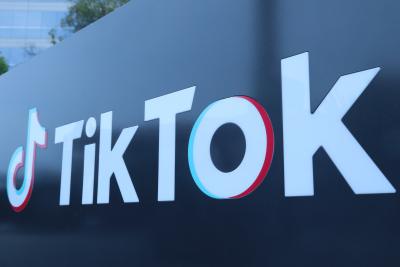Los Angeles, Aug 27 : Some experienced US lawyers predict that TikTok hardly has the opportunity to win the lawsuit that the company has filed over the US government’s executive order of banning any transaction with its parent company ByteDance, but the move is not unnecessary.
“We cannot at this point predict the outcome of the litigation with certainty, a US court will be reluctant to rule against the President on an issue of national security,” Dan Roules, the managing partner of the Shanghai Office of Squire Patton Boggs, told Xinhua news agency on Tuesday.
Roules is a business lawyer who focuses on helping Chinese companies understand and cope with legal, political, and other issues while investing abroad. He has spent his entire career at Squire Patton Boggs, one of the 30 largest law firms in the world.
“Traditionally the US courts have tended to respect and defer to the US executive branch on such matters,” he said. “The evidentiary requirements and burden of proof on TikTok will be high.”
Earlier this month, the administration of President Donald Trump cited the International Emergency Economic Powers Act (IEEPA) and issued executive orders banning any US transactions with TikTok and WeChat, starting in 45 days.
TikTok, a Los Angeles-based tech firm, filed a lawsuit over the executive order on Monday, arguing that the executive order is unconstitutional and a misuse of the IEEPA.
Bobby Chesney, a professor from the University of Texas School of Law, also gave a very pessimistic account in his blog posted Tuesday after analyzing each of the claims that TikTok raised in its indictment.
Chesney noted that, for TikTok, how to define “success” to its challenge to the administration is a real question, saying that if the video-sharing, music and social networking service company with about 100 million American users just tried to keep the company in regular operations until then, it could be.
He said it is possible that the district court might take some preliminary procedural steps, such as issuing a stay, granting a preliminary injunction, denying a motion to dismiss, which will help the companies, TikTok and ByteDance, fend off the mid-September imposition of sanctions at least for a time.
“That prospect has real value for the companies,” the blog read. “Indeed, if TikTok and ByteDance can keep this plate spinning throughout the pending 90/120-day period, that’s a considerable victory – even if the claims ultimately would all fail.”
Roules agreed that the lawsuit could buy time for ByteDance to close the deal on the sale of TikTok to any of several possible US companies interested in purchasing, including Microsoft, Twitter, and Oracle.
The Business Insider reported Wednesday that US investors in ByteDance, including big firms like Sequoia Capital and General Atlantic, are now backing Oracle as the tech firm has the advantage of strong political connections to Trump.
“I would expect a sale, not a shutdown or spinoff, as a sale may present the best way for ByteDance to realize value in this challenging situation,” he said, adding that whatever the result would be, it would be a “wake-up” call to Chinese companies and the global internet industry.
“Even if the US wins the litigation, there is some risk that the US government will be perceived by the global industry to have acted arbitrarily against ByteDance/TikTok. That could have longer term repercussions for the industry in the US and make other foreign investors more hesitant.”
“At a minimum, other Chinese companies in the internet sector will remember this and likely be more hesitant about making large acquisitions or investments in this sector in the US,” the veteran lawyer said.
“I see the TikTok situation as a wake-up call for Chinese companies,” said Roules, who has been working in China during the past 25 years. Usually Chinese companies establishing businesses in the United States has sought to “stay under the radar,” generally complying with US laws and operating without attracting attention, he explained.
“The TikTok case demonstrates that any Chinese company may attract the attention of the US government, and the US government has an arsenal of tools that might be used to threaten the success of the business.”
“China’s government has generally exercised considerable restraint in recent months with respect to the US,” he warned, “but at some point the Chinese government may feel impelled to take action or to speak out more forcefully on behalf of Chinese companies in the US.”
Disclaimer: This story is auto-generated from IANS service.

